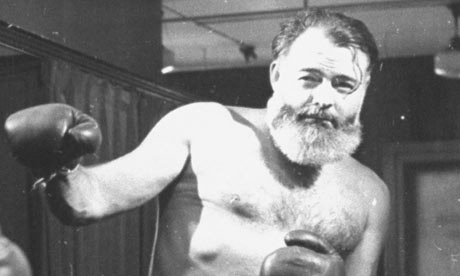Hemingway revealed as failed KGB spy
Notes from Stalin-era intelligence archives show ‘agent Argo’ as a willing recruit in 1941

Useful in battle? Ernest Hemingway in 1944. Photograph: George Karger/Time Life Pictures
Up till now, this has been a notably cheerful year for admirers of Ernest Hemingway – a surprisingly diverse set of people who range from Michael Palin to Elmore Leonard. Almost every month has brought good news: a planned Hemingway biopic; a new, improved version of his memoir, A Moveable Feast; the opening of a digital archive of papers found in his Cuban home; progress on a movie of Islands in the Stream.
Last week, however, saw the publication of Spies: The Rise and Fall of the KGB in America (Yale University Press), which reveals the Nobel prize-winning novelist was for a while on the KGB’s list of its agents in America. Co-written by John Earl Haynes, Harvey Klehr and Alexander Vassiliev, the book is based on notes that Vassiliev, a former KGB officer, made when he was given access in the 90s to Stalin-era intelligence archives in Moscow.
Its section on the author’s secret life as a “dilettante spy” draws on his KGB file in saying he was recruited in 1941 before making a trip to China, given the cover name “Argo”, and “repeatedly expressed his desire and willingness to help us” when he met Soviet agents in Havana and London in the 40s. However, he failed to “give us any political information” and was never “verified in practical work”, so contacts with Argo had ceased by the end of the decade. Was he only ever a pseudo-spook, possibly seeing his clandestine dealings as potential literary material, or a genuine but hopelessly ineffective one?
The latter reading would chime with his attempts to assist the US during the second world war in his fishing boat El Pilar, patrolling waters north of Cuba in search of U-Boats, making coded notes but only one sighting.
